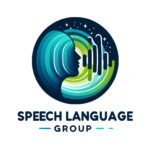Cornet Seminar – Judith Agueda Roldan Ahumada – 15/03/2024
In the context of team Cornet’s seminars, Judith Agueda Roldan Ahumada (Universidad Veracruzana) will present her research work on Modeling and optimization of a vehicle routing problem in a coffee company, on March 15, 2023, at 11:35 in the meeting room. Abstract: In the central region of Veracruz, Mexico, given the weather and soil conditions, there are different companies dedicated to the coffee bean production. To carry out the different activities such as planting, harvesting,cleaning, among others, it is necessary to transport the harvesters to different agricultural lands; usually, this logistics problem is solved empirically without considering the cost per transfer. The problem, that will be shown, arose from the needing to solve a transport logistic problem for a coffee bean company in the central region of Veracruz.We consider a single vehicle with maximum capacity of N items, the vehicle starts the path with out items from a parking and it can collect the items in places that are along the way, that goes from parking to the place where the items are delivered (agricultural lands). The places are ordered consecutively, such that, once the vehicle goes through one, it can not return to the previous sites and it is Plus d'infos


